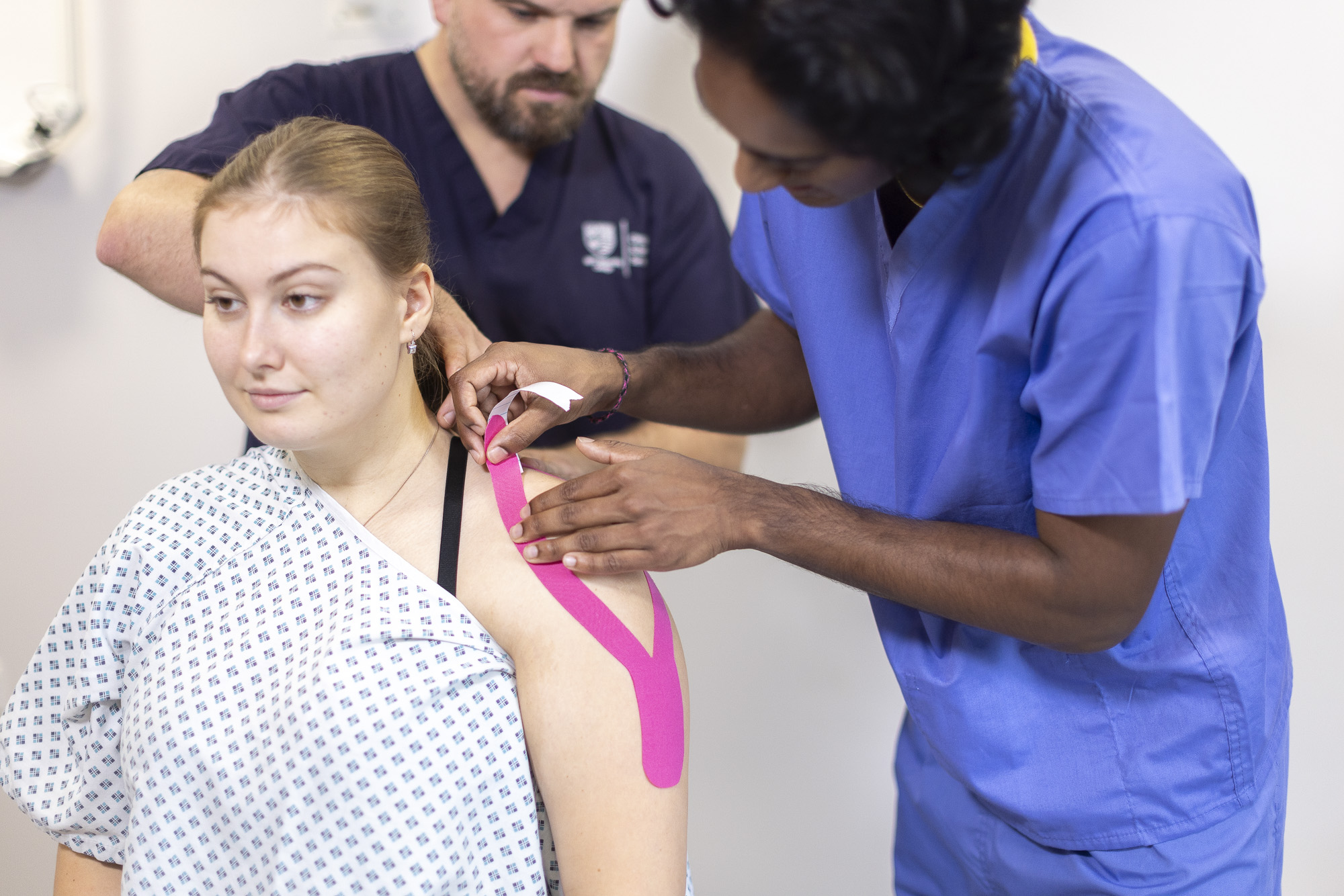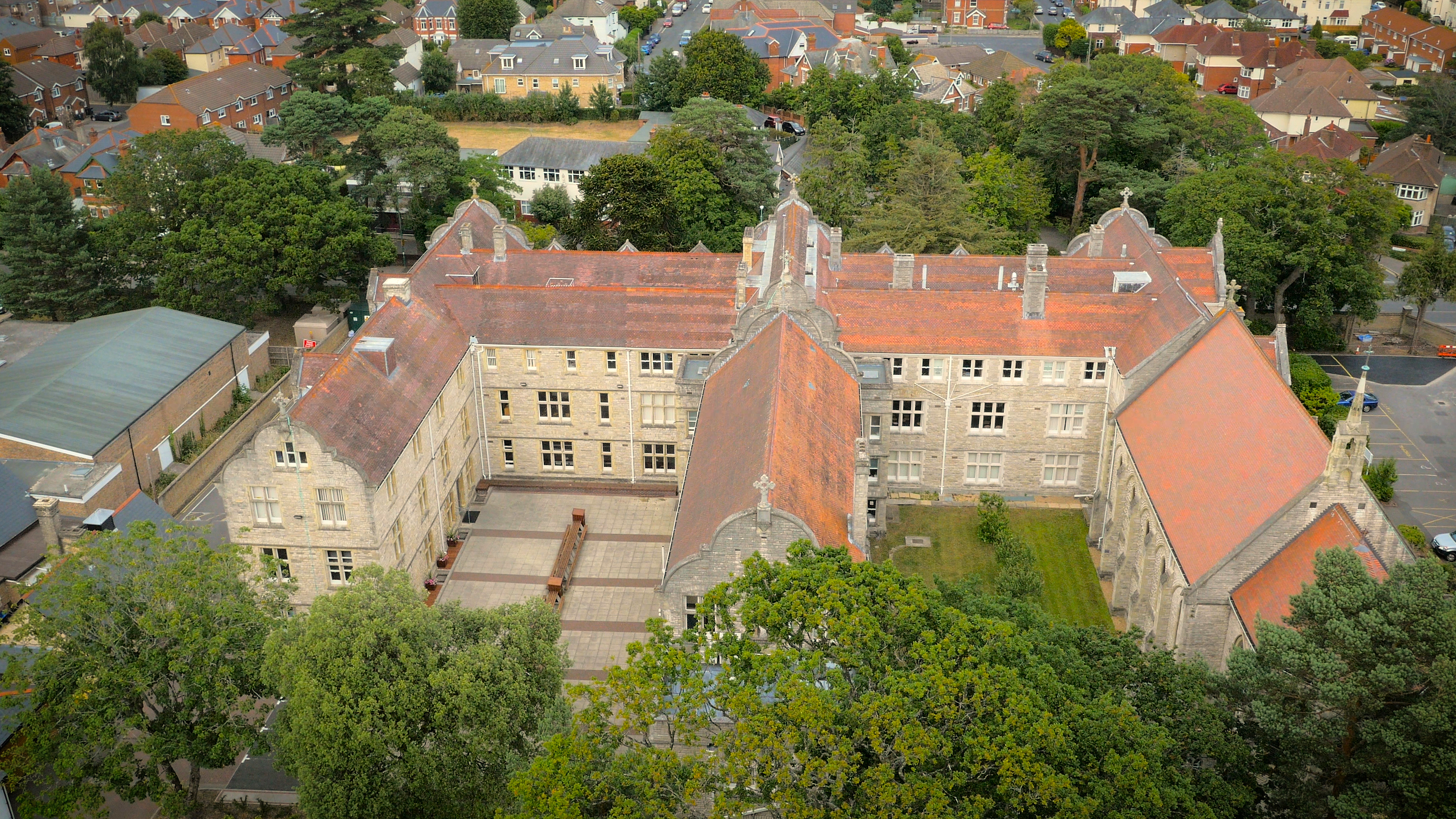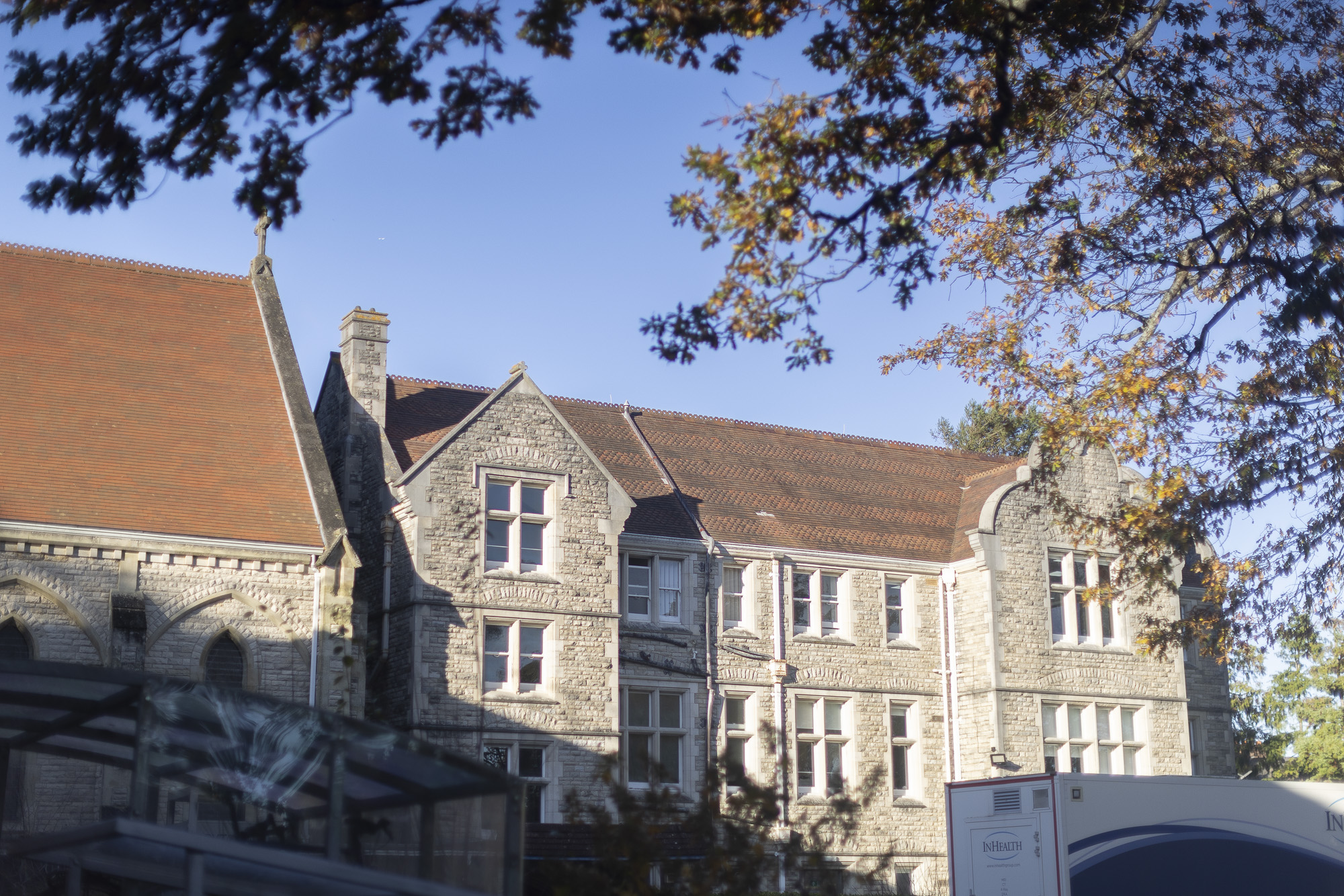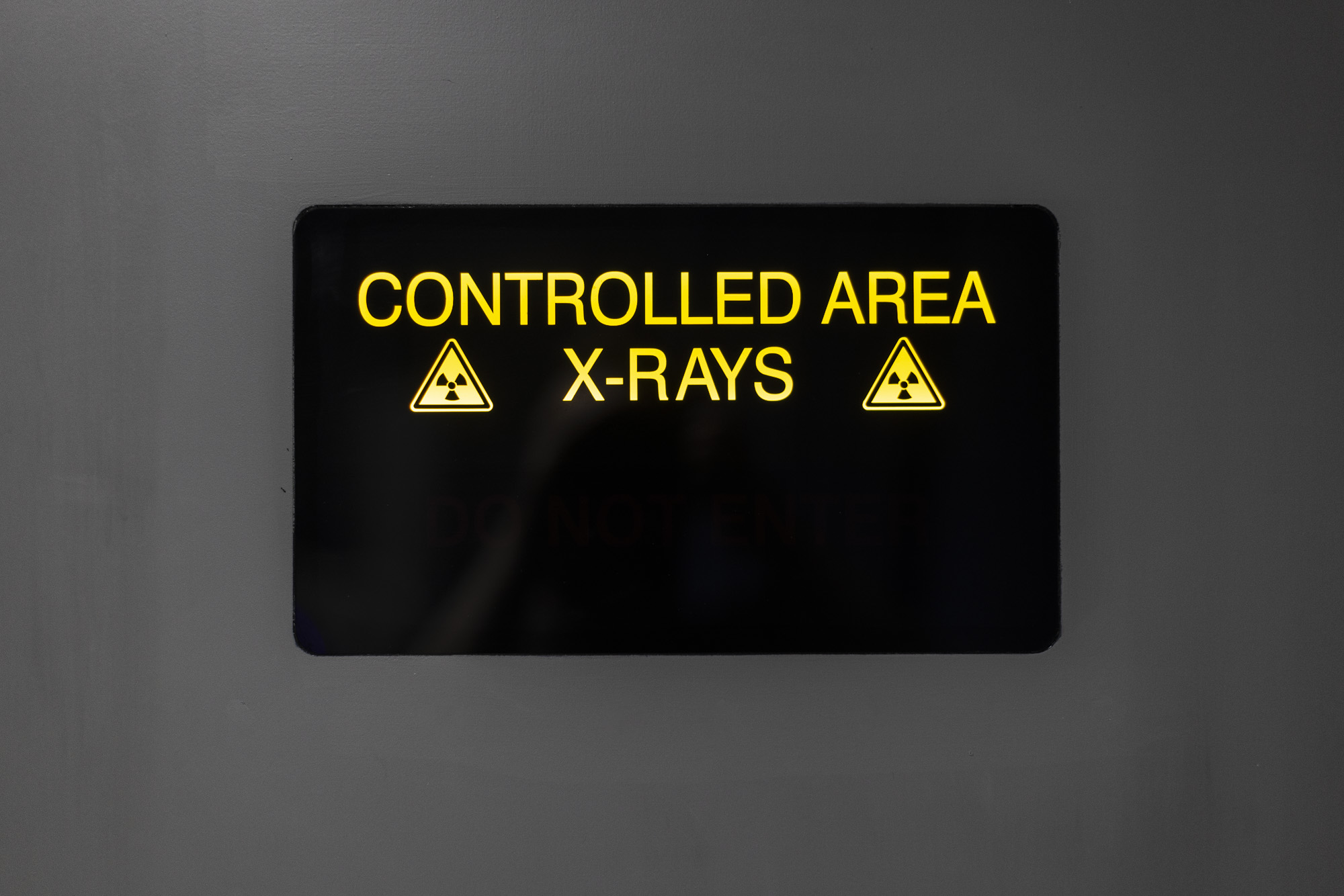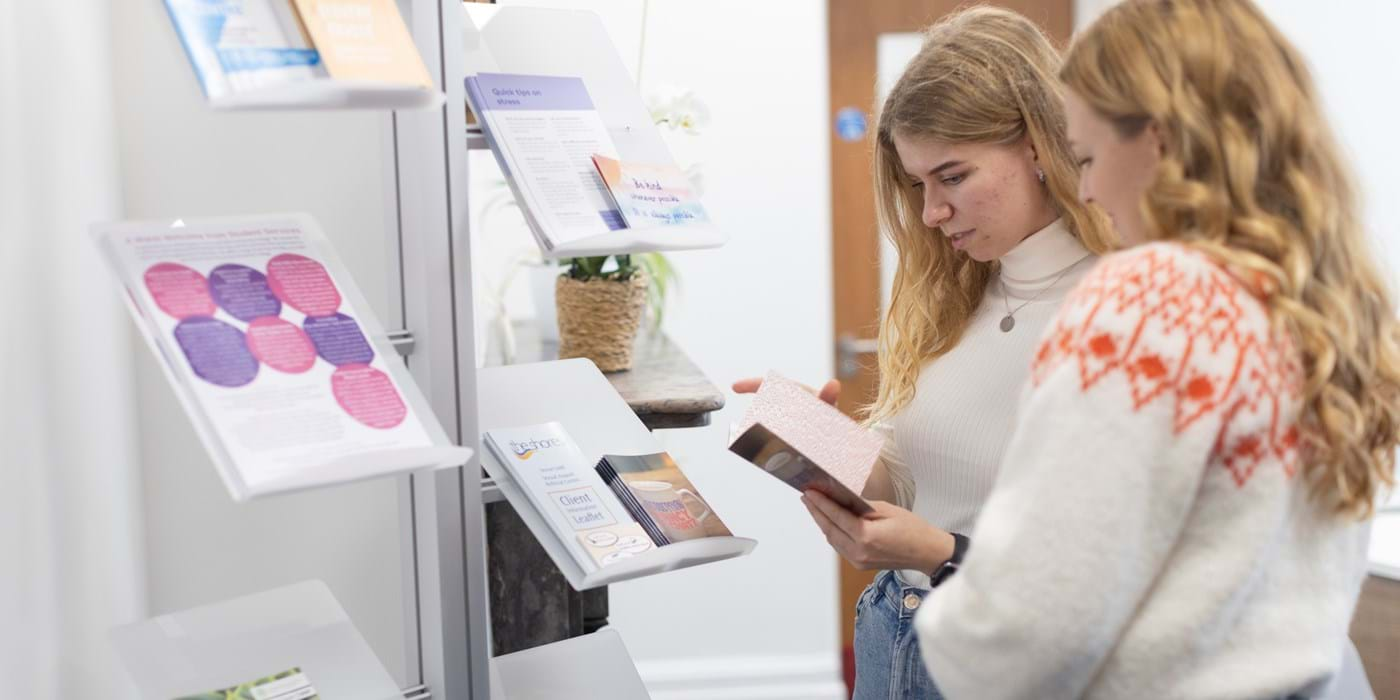Overview
The PGCert First Contact Practice is the taught route to becoming a recognised First Contact Practitioner (FCP). The taught route is underpinned by six main areas:
- Advancing knowledge and skills of First Contact Practice
- Utilising evidence-based practice
- Enhancing autonomous professional practice
- Enabling collaborative working
- Developing person-centred practice
- Facilitating continuous professional development
How to apply?
Please Note: We are currently accepting applications for the 2025-2026 PGCert FCP course only, with very limited places for the standalone stage 2 option for those who have completed stage one. To be able to enrol as a standalone stage 2 e-portfolio applicant, you MUST have already:
- Completed the MACP pathway or SOMM Level 3 (for the MSK roadmap) or
- Possess a minimum of 40 Level 7 credits from a university focused on FCP/history taking/physical assessment
If you do not have the above, please apply for the full PGCert. If you believe you have other exceptional circumstances, please contact the course team on FCP@aecc.ac.uk . This is to ensure that the knowledge and skills required for FCP stage 1 are fully met prior to clinical practice e- portfolio. This is also to ensure that you have the academic ability to complete Stage 2 at Masters Level.
Please note you will need to have a supporting PCN / employer that supports your application for this course.
Please note that an LNA (Learning needs analysis) needs to be completed prior to your application. There are two intakes for PGCert FCP in 2025, one in May and one in September. Please state on your LNA which you would like to apply for.
Course Details
This course is aimed at providing Allied Health Professionals the opportunity to develop as competent, evidence based first contact practitioners.
What You’ll Learn
You will study FCP Level 7 modules that have been mapped against the Knowledge, Skills and Attributes required to meet the First Contact Practitioners Roadmap (NHSE 2021) at an organisation that has achieved recognition by the Centre for Advancing Practice as meeting the FCP roadmap stage 1 and 2 requirements.
Please refer to the entry requirements and course details below for full details on application criteria and modules.
This is a 60 credit award at Level 7 (Masters Level).
There are two units within our First Contact Practice course with make up the PGCert, these are:
- Clinical Assessment and Reasoning for First Contact Practice (40 credits)
- First Contact Practice Stage 2 (20 credits)
Both units have been mapped against the Knowledge, Skills and Attributes required to meet the roadmaps for each profession (NHSE 2021). The units have been developed in wide consultation with a number of experts and stakeholders. The delivery of the units will be supported by a wide-ranging clinical faculty of experts. The majority of the taught content will be delivered on an interprofessional basis with some elements of delivery which are specific to a roadmap delivered to that profession.
Why Study First Contact Practice at HSU?
- Our FCP course is recognised by the Centre for Advancing Practice as meeting the FCP roadmap stage 1 and 2 requirements
- We are one of only a handful of providers of training for First Contact Practitioners in England with funding from NHS England, meaning your tuition fees are covered for the course.
- You will be supported by the Primary Care training hubs with appropriate placement opportunities to transition into a role in Primary Care at the end of the first unit of study, before commencing Unit 2.
- We deliver both FCP education and clinical services which means we are in a unique position to be able to offer FCP placements for MSK practitioners in our fantastic onsite clinical services here at HSU.
To find out more, read course specification below:
PGCert First Contact Practice – Course Specification
Unit Breakdown
Clinical Assessment and Reasoning for First Contact Practice 
Units
Unit 1: Clinical Assessment and Reasoning for First Contact Practice (40 credits)
Unit 1 is mapped against the Knowledge, Skills and Attributes (Stage 1) of the Roadmaps (NHSE 2021).
The unit will assist in the preparation of individuals for their transition to an FCP role as a clinician working in primary care and is focused on developing skills in systematic history taking, physical examination, clinical reasoning and investigations, and explores personalised approaches to patient care. Content covered includes:
- Personalised Approaches- Advanced communication skills; self-awareness; co-production and shared decision making for personalised healthcare
- Assessment, Investigation and Diagnosis- clinical sciences as relevant to presenting conditions; history taking; physical assessment; clinical reasoning and decision making; diagnostics
- Condition Management, Interventions and Prevention- prognostic factors; behaviour change and health promotion strategies; self-management;
- Service and Professional Development- critical appraisal skills for evidence-based practice; clinical audit; critical reflection and self-awareness
Unit 1 is taught over 6 months, with unit 2 over delivered over 6 months . For unit 1, you will have 5 on-site delivery days in 2 x two day blocks, 1 x 1 day. The OSCE / VIVA examination is also in person. The other 7 days will be delivered online. To begin stage 2 you will require a Clinical Supervisor to provide clinical supervision.
First Contact Practice Stage 2 
Units
Unit 2: First Contact Practice Stage 2 (20 credits)
This unit is designed to you to develop a professional portfolio which demonstrates a master’s level of practice in relation to First Contact Practice.
This will be undertaken through critical exploration/awareness of current evidence-based practice, scholarship and research and quality improvement initiatives. You will generate a portfolio which includes a wide variety of evidence. The portfolio will be summatively assessed at the end of the unit, yet form the foundation for an ongoing professional practice portfolio constantly built upon. This unit will be delivered online with both synchronous and asynchronous content delivery. You will be required to undertake group work (online), peer-assessed student presentations and self-directed learning. There will be 21 hrs of student contact time and you will receive the equivalent of 9 hrs portfolio support as required. You will be required to undertake and additional 170 hrs of independent study, including 75 hours of supervised practice in First Contact Practice.
The assessment of this unit focuses on the development and completion of the FCP Portfolio mapped against the Knowledge, Skills and Attributes required to meet Stage 2 of the First Contact Practitioners and Advanced Practitioners in Primary Care Roadmap (NHSE 2021) for the corresponding profession. This is completed via an online platform, with supervision by an academic supervisor. A clinical supervisor in practice is required to complete this course. In addition you will produce a 3,500 word commentary which will provide a critically reflective narrative of your development as a First Contact Practitioner (linked to research and your portfolio of evidence).
Emphasis is placed on the development of qualities such as the capacity for critical reflection and enquiry, which are required for self-determined practice. Most of the learning will be centred around the experiential learning gained whilst on placement and through discussion and debate with experienced clinicians on all aspects of patient management. The unit also aims to foster the qualities of leadership and mentorship, the ability to innovate and initiate change, and to participate in effective collaboration with other professionals.
Both units have been mapped against the Knowledge, Skills and Attributes required to meet the roadmaps for each profession (NHSE 2021). The units have been developed in wide consultation with a number of experts and stakeholders. The delivery of the units will be supported by a wide-ranging clinical faculty of experts. The majority of the taught content will be delivered on an interprofessional basis with some elements of delivery which are specific to a roadmap delivered to that profession.
Entry Requirements
What qualifications do I need 
What qualifications do I need
Applicants must meet the criteria for their relevant roadmap:
MSK Roadmap – HCPC-registered physiotherapists or GOsC-registered Osteopaths, who have achieved a minimum of 5 years post-qualifying experience (3+ years minimum musculoskeletal experience)
Paramedic Roadmap – HCPC-registered paramedic with 3-5 years post-registration/ post-graduate experience
Dietitian Roadmap HCPC-registered dietitian with typically 5 years post-registration/ post-graduate experience
Occupational Therapy Roadmap HCPC-registered occupational therapist with typically 5 years post-registration/ post-graduate experience
Podiatry Roadmap HCPC-registered podiatrist with typically 5 years post-registration/ post-graduate experience
Is there anything else that’s required 
Is there anything else that’s required
In addition, all applicants must be able to meet the following criteria
- Support of their line manager to undertake the course
- A suitable clinical mentor must be identified prior to unit 2 (First Contact Practice Stage 2 Placement)
Please note: Some of the roadmaps require students to be required to complete E-LfH modules as stated in the roadmap before enrolling on the units.
How to apply 
How to apply
Applications are now open. Please download and fill the correct LNA (Learning Needs Analysis) form and email it back to us.
An LNA is an iterative process which you start by providing details about yourself, your education, experience, and relevant education including a self-assessment mapping exercise against a series of questions – based on the Knowledge, Skills and Attributes specific to the FCP roadmap for your profession.
Once this form is completed, please email it to FCP@aecc.ac.uk. The FCP team will analyse the response and advise you on a pathway to achieving the FCP roadmap.
Please note: To edit one of these PDF forms, please download the file to your device and use a PDF editing tool or software, such as Adobe Acrobat.
To register your interest or ask any questions about the course, please email it to FCP@aecc.ac.uk.
For more information about our admissions policies and procedures, including our Admissions Complaints and Appeals Policy, see latest policies.
Still have questions about applying?

Why choose Health Sciences University
There are many benefits to studying at Health Sciences University, from our expertise and history in teaching health sciences, to our state-of-the-art facilities, on-site clinical training, and of course our location on the beautiful Bournemouth coast.

